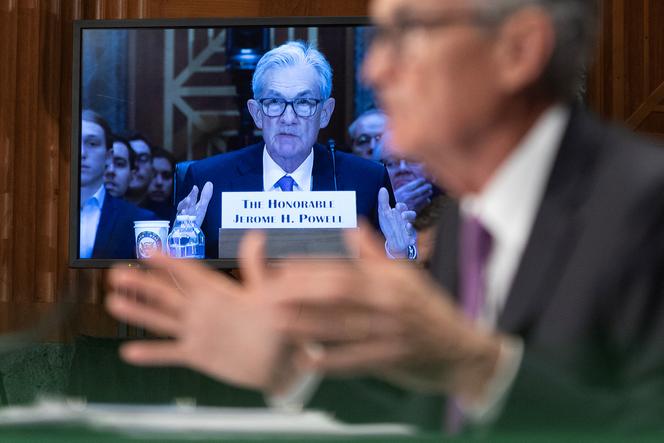


The Federal Reserve left rates unchanged above 5.25% on Wednesday, March 20. This came as no surprise, as the latest inflation figures (3.2% in February, after 3.1% in January) hinted that a resumption of price rises is not to be ruled out.
The trouble is, if it takes too long to raise rates, the central bank risks being drawn into the realm of party politics, eight months before the presidential election. The situation is a double paradox. Donald Trump, a former real estate developer, has always been in favor of low rates. "Interest rates are very high. (...) People can't buy homes," he complained in September 2023. But with the presidential election underway, he is now accusing the Fed of trying to lower rates to help Joe Biden. "I expect he [Fed Chairman Jerome Powell] will try to lower interest rates to get people elected," Trump criticized in early February.
The second paradox is that the longer Powell delays cutting rates, the less real economic impact his decision will have between now and the election, but the move will be viewed politically and exploited even more by Trump.
The Republican candidate has already made it clear that he would not propose the reappointment of Powell, whose term expires at the beginning of 2026. It's true that it was Trump who appointed the moderate Republican to succeed the Democrat Janet Yellen in 2018, but he harshly criticized him almost immediately. First, he criticized Powell for raising rates too sharply at the end of 2018, then for lowering them too slowly in 2019. The president's position was defensible – the 2018 tightening was deemed excessive – but it cut across the central bank's principle of independence and complicated its job.
For several weeks now, Trump has been mulling over the name of a possible successor to Powell. According to the Wall Street Journal (WSJ), three potential candidates were proposed to him in early March during a meeting at his Mar-a-Lago estate in Florida: Arthur Laffer, Kevin Warsh and Kevin Hassett.
A former economic adviser to Ronald Reagan, Laffer, 83, known for his curve on diminishing returns to taxation (too much tax kills tax, as taxpayers' willingness to pay erodes when the tax rate is too high), is one of the founding theorists of supply-side economics and a champion of tax cuts under Trump in 2017. Warsh, 53, was an adviser to George W. Bush in the early 2000s and a short-lived Fed Board member. He is the son-in-law of cosmetics billionaire Ronald Lauder. Lastly, Hassett, 61, was the White House chief economic adviser under Trump.
You have 53.98% of this article left to read. The rest is for subscribers only.
